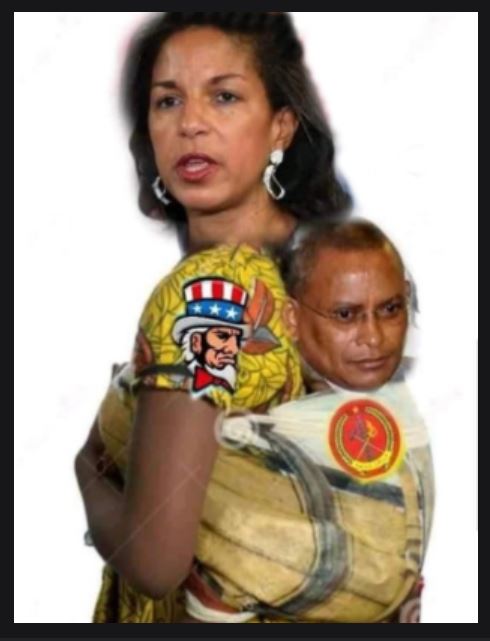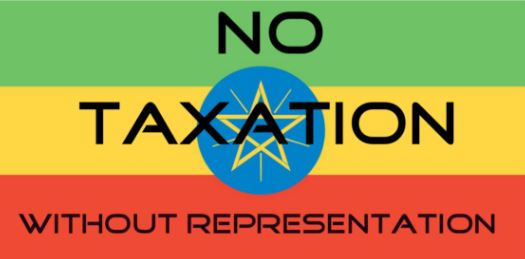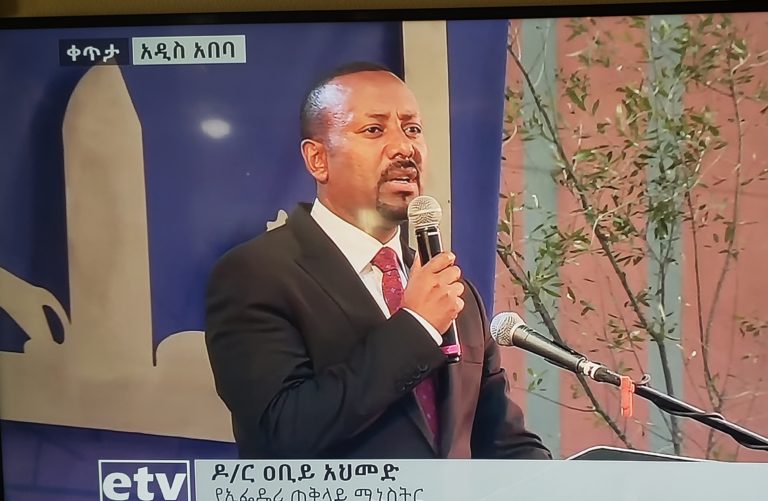The Ethiopianization of Kenya
Editorial
Ethiomedia | February 19, 2008
http://www.ethiomedia.com/abai/the_ethiopianization_of_kenya.html
Mr. Kofi Annan tried to resolve the crisis (AFP) A few days ago the New York Times reported that Kenya is in the “throes of ethnic segregation.” Following the highly disputed presidential elections there, hundreds of thousands of people have been internally displaced, resulting in a massive flight of Kenyans of all ethnic backgrounds to their “ancestral homelands.” No one could have seriously predicted such decomposition of Kenyan society a few months ago.
On December 27, presidential election day in Kenya, Kenyan environmentalist and Nobel laureate Wangari Maathai expressed her concern and disapproval of the direction of reactionary ethnic politics in her country. She said, “Ethnicity is one of the major strategies that politicians have used to divide the African populace. I do not believe that people who have lived as neighbors for hundreds of years can just begin attacking each other and killing one another without provocation or support from those in power.”
Maathai’s worst fears were realized just days after the elections. Friends turned on friends; and neighbors attacked neighbors only because of differences in ethnic origin. Distrust and anger replaced 50 years of civility and tolerance. Kenyans began accusing each other of being “foreigners”, and shamelessly ordered one another to go back “home”. “Home”? The madness of Kenya was in full swing within weeks of Kibaki self-coronation as president. As the Times reported: “Luos have gone back to Luo land, Kikuyus to Kikuyu land, Kambas to Kamba land and Kisiis to Kisii land…. Trucks piled high with mattresses, furniture, blankets and children keep chugging across the countryside, an endless convoy of frightened people who in their desperation are redrawing the map of Kenya.” The body count was equally shocking: over 1,000 Kenyans dead from election-related violence, and over 600,000 displaced in a population of some 35 million.
There is no denying that the ethnic fabric of Kenya has been shredded in the post-election violence and upheaval; and Kenya’s exemplary democracy in Africa has crumbled like sawdust. Kenya is now plunged in divisive and destructive tribal/ethnic politics, and the long term outlook for Kenya is grim. After a half century of national existence, democratic experimentation, and stability, Kenya has degenerated into a tribal/ethnic basket case beset by violence, fear and loathing.
Kenya could have easily avoided this calamity. It had all of the tools at its disposal — a functioning and well-oiled electoral process, a civically engaged population, a democratic political culture enriched by prior voting experiences, an active and independent press, and a reasonably professional and independent judiciary, among others. It could have peacefully and amicably resolved the persisting questions of land ownership and redistribution, democratic power sharing, and grievances over issues of ethnic domination. But Kenya had to make the right choice to get it right.
Unfortunately, for Kenya, Kibaki made the wrong choice by his naked power grab. He had two clear choices: Follow the Ethiopian model of ethnic-fragmentation electoral politics, or the Tanzanian way. Kibaki made the wrong choice. He wanted to perpetuate his personal rule and protect the privileges of his henchmen by playing the “ethnic card”, despite decisive popular rejection at the polls. Kibaki understood the implications of the theft of the presidential election for Kenyan national politics. He was fully aware of the potential for ethnic upheavals and widespread violence. He thought he could handle it by replicating the lessons of Kenya’s neighbor to the north, and perpetuate himself in power by introducing the discredited politics of “ethnic federalism”. But that experiment in bogus federalism had long proved to be a failure at its source of origin. As the Times noted, “Ethiopia set up a system in the mid-1990s called ethnic federalism, which carved the country into ethnic-based regions, each with broad power — at least on paper — including the right to secede. But Ethiopia’s leaders soon concluded that too much regional autonomy would tear the country apart, and Ethiopia is now more or less centrally controlled by members of a small ethnic group.”
Kibaki could have chosen the Tanzanian way which built upon the people’s sense of national unity, collective pride and brotherhood/sisterhood. As the Times contrasted, “Tanzania took the opposite approach. It de-emphasized ethnicity. It encouraged people to speak Kiswahili, and not their mother tongues, as a way to build Tanzanian-ness. The government sent children to high schools in different areas to expose them to different communities. Tanzanian election law even makes it illegal to campaign for office based on ethnic group.”
It appears Kenya may have missed its appointment with destiny. Had it followed the Tanzania model, it could have been not only a great African nation, but also an object lesson in democracy, pluralism, harmony and tolerance for the rest of Africa. Tragically, the country that was touted to have the best promise of democracy fell victim to the malignant ethnic malady that continues to afflict its neighbor to the north.
The irony of Kenya at this moment in history is that one of its grand children has become a leading contender for the presidency of the United States selling an electrifying message of national unity, racial and ethnic harmony and global peace and tolerance. Barack Obama said, “There is not a black America and a white America. There is not a liberal America and a conservative America. There is the United States of America.” It is sad that the grand old man of Kenyan politics — the man who helped draft the Kenyan Constitution — could not bring himself to say, “There is not a Luo Kenya. There is not a Kikuyu Kenya. There is not a Kisii Kenya. There is no Kamba Kenya. There is just ONE Kenya!”
The truth of the matter is that in Africa today unscrupulous and corrupt regimes are glorifying tribal politics in the name of ethnic autonomy and self-determination. They unearth historical grievances to give legitimacy to their self-serving claims that they are the defenders of ethnic rights. But all of these efforts are little more than transparent excuses for the pursuit of the old “divide and rule” strategy used by minority governments the world over. In South Africa, the apartheid regime created ten bantustans for the purpose of concentrating the African population in designated areas based on their ethnic (tribal) affiliation. It did not work. Decades ago, a similar trick called “gerrymandering” was used to disenfranchise African American voters in the United States and perpetuate the rule of segregationists. It did not work either.
Those who seek to preserve their dictatorship in the name of defending ethnic rights should be challenged with the compassionate language of a common brotherhood/sisterhood and nationhood that appeals not tribal differences and prejudicies, but to the collective yearning of the people for justice, fairness and equality. In Kenya, as elsewhere, there could be no special brand of justice or democracy that is tailored exclusively for the Luo, the Kikuyu, the Kamba, the Kisii or any other group. Where there have been historical injustices, they should be addressed openly in a national democratic dialogue, and set right in a process of national reconciliation and in the spirit of compromise. The best defense for Kenyans against those who peddle the politics of tribalism in the name of ethnicity is to refuse to participate in the villainous schemes hatched by conscienceless and corrupt dictators and leaders to dismember the Kenyan nation.






